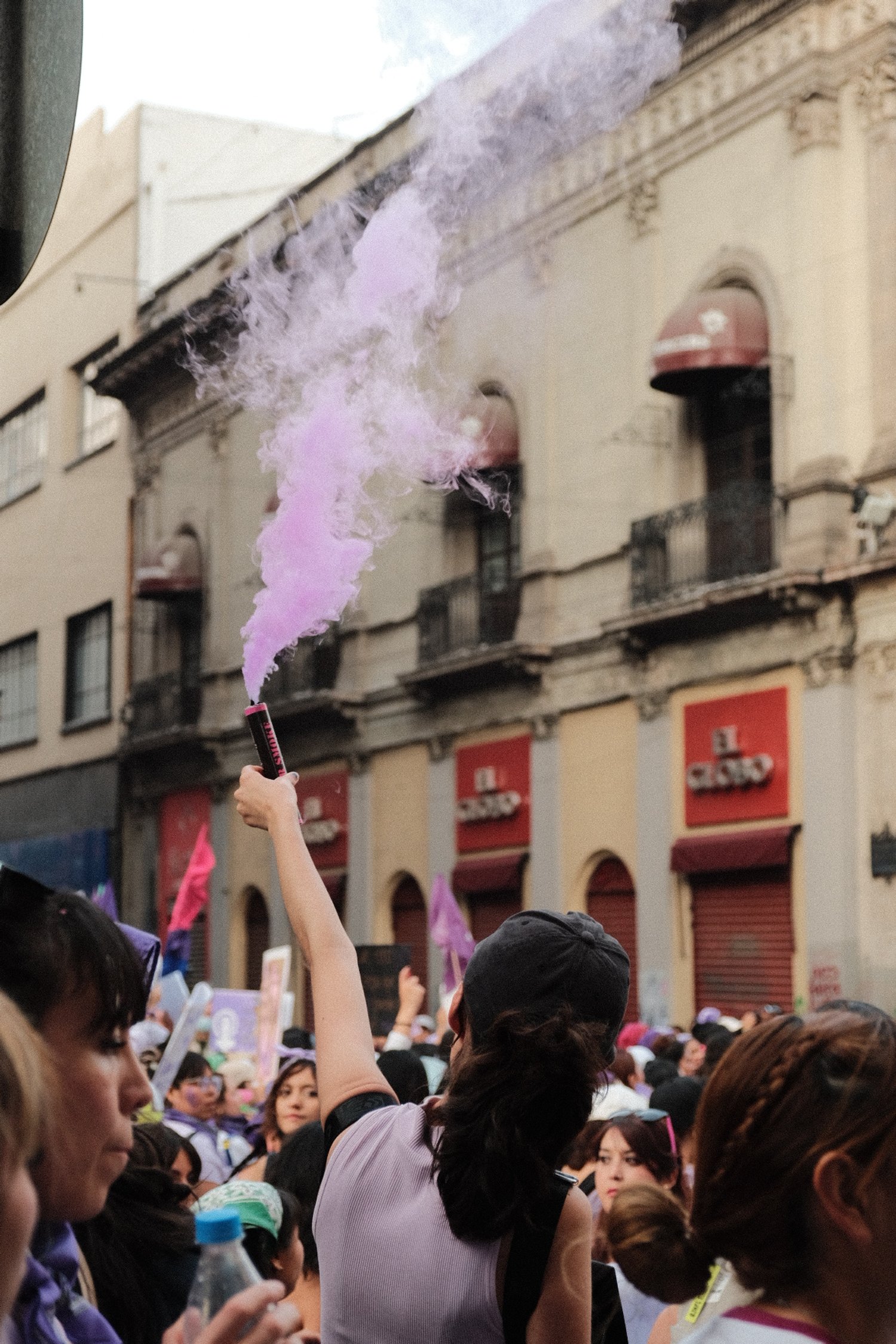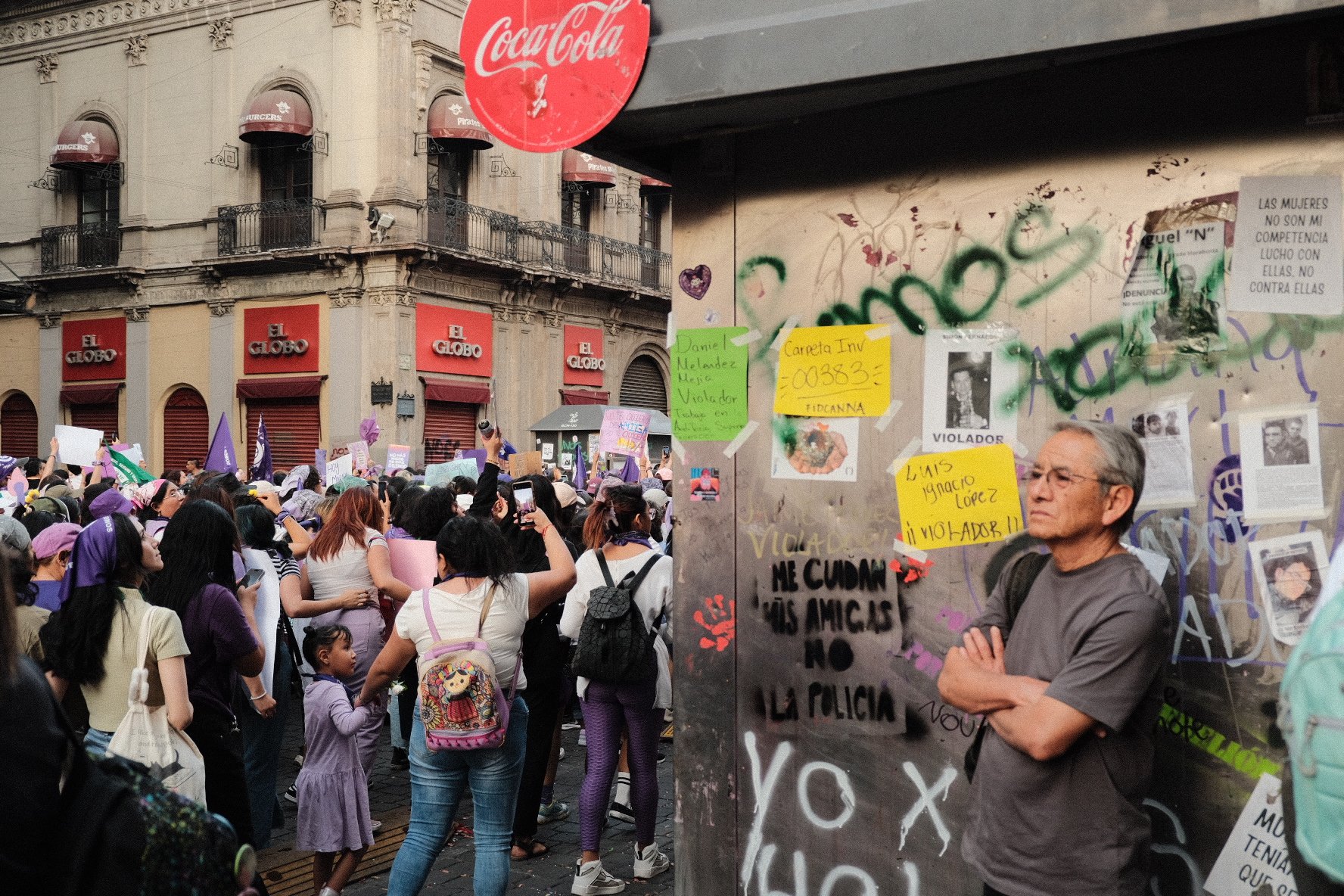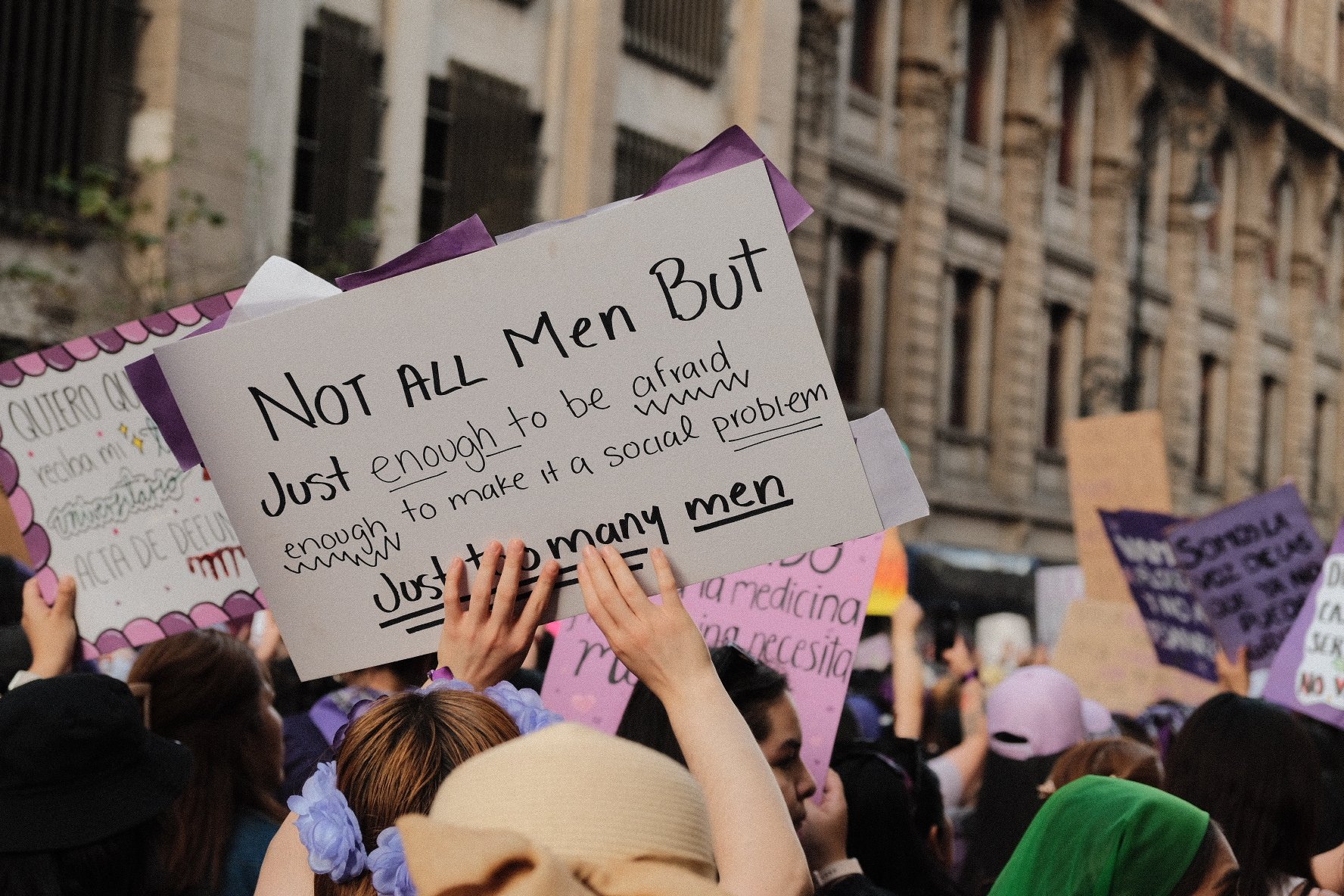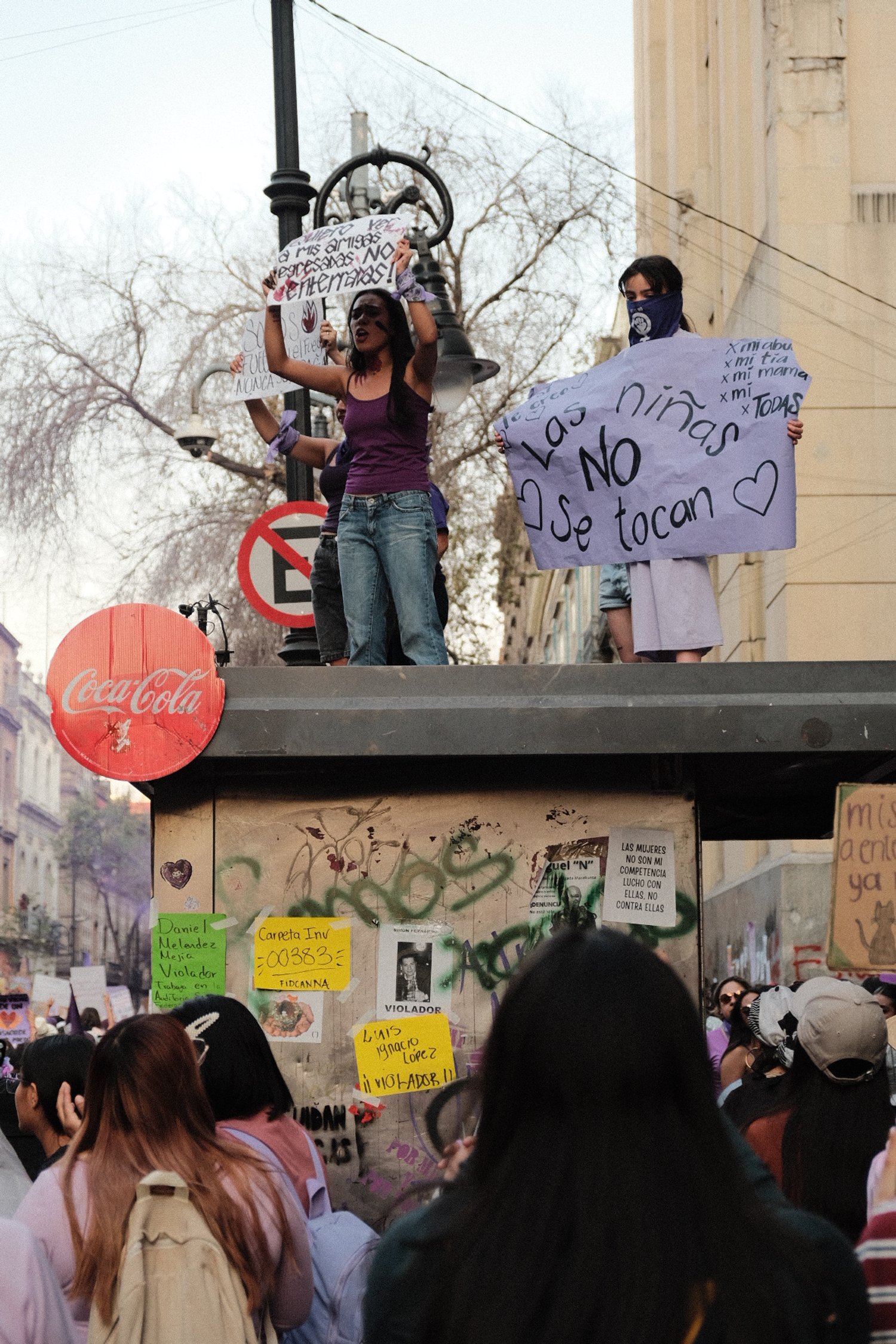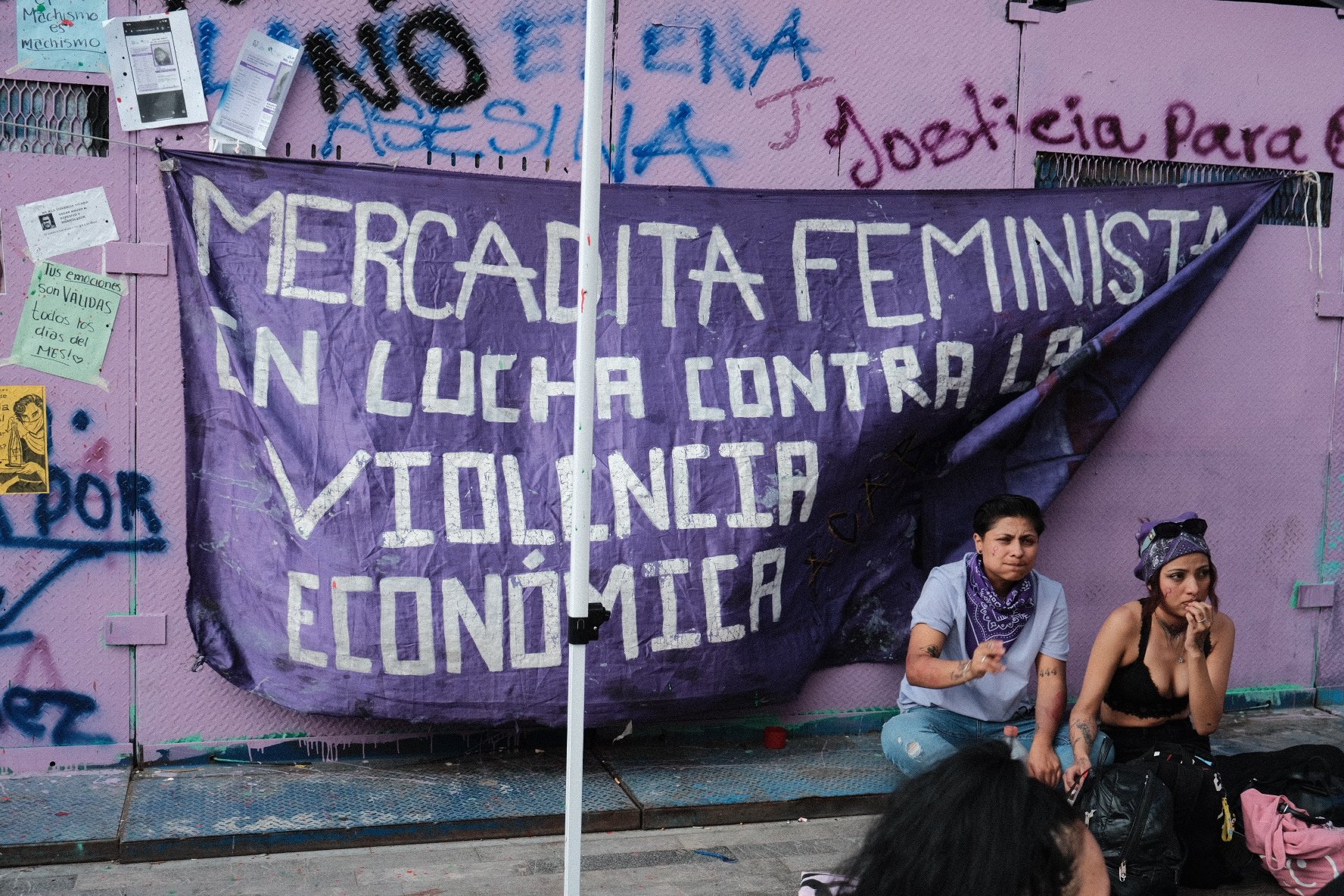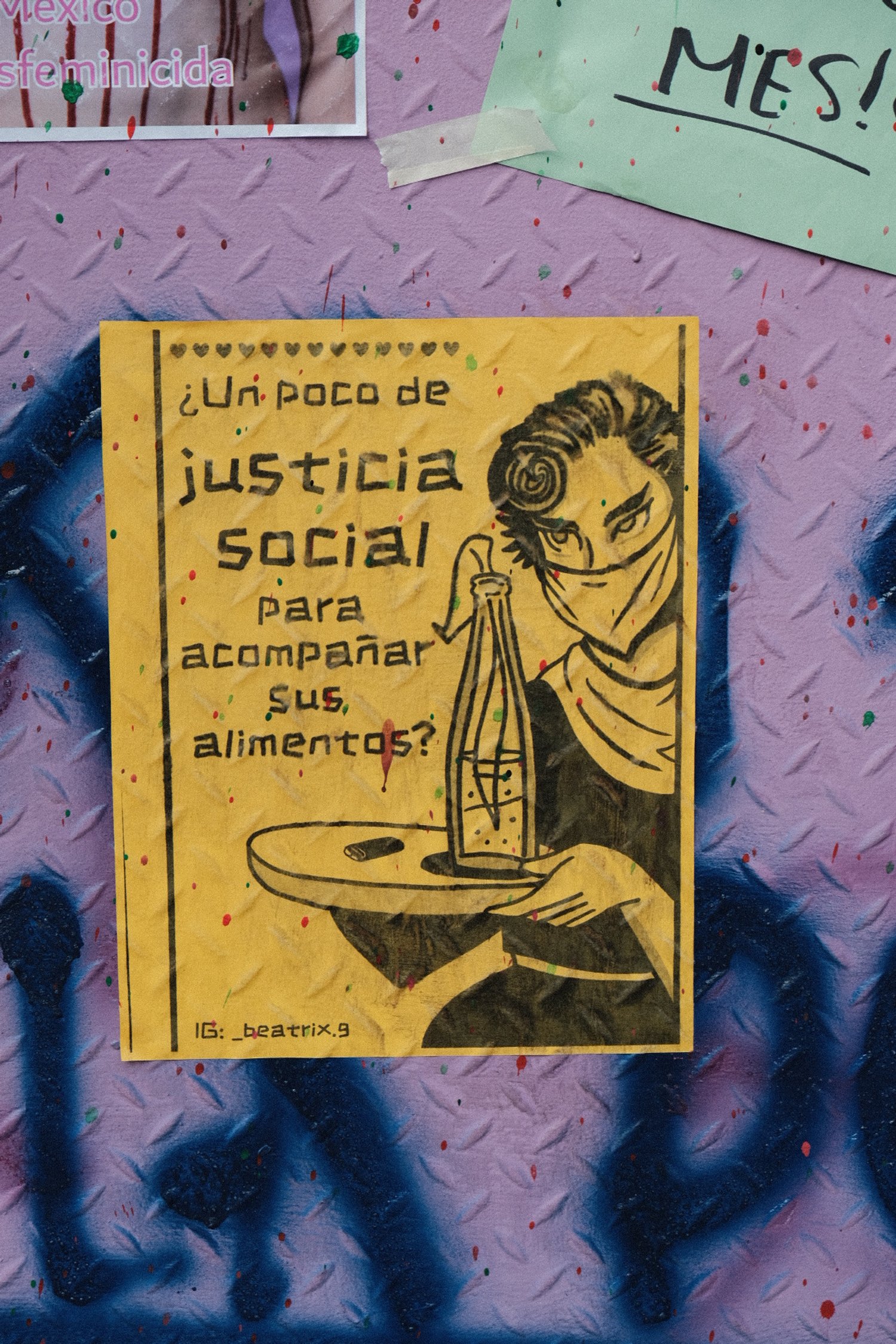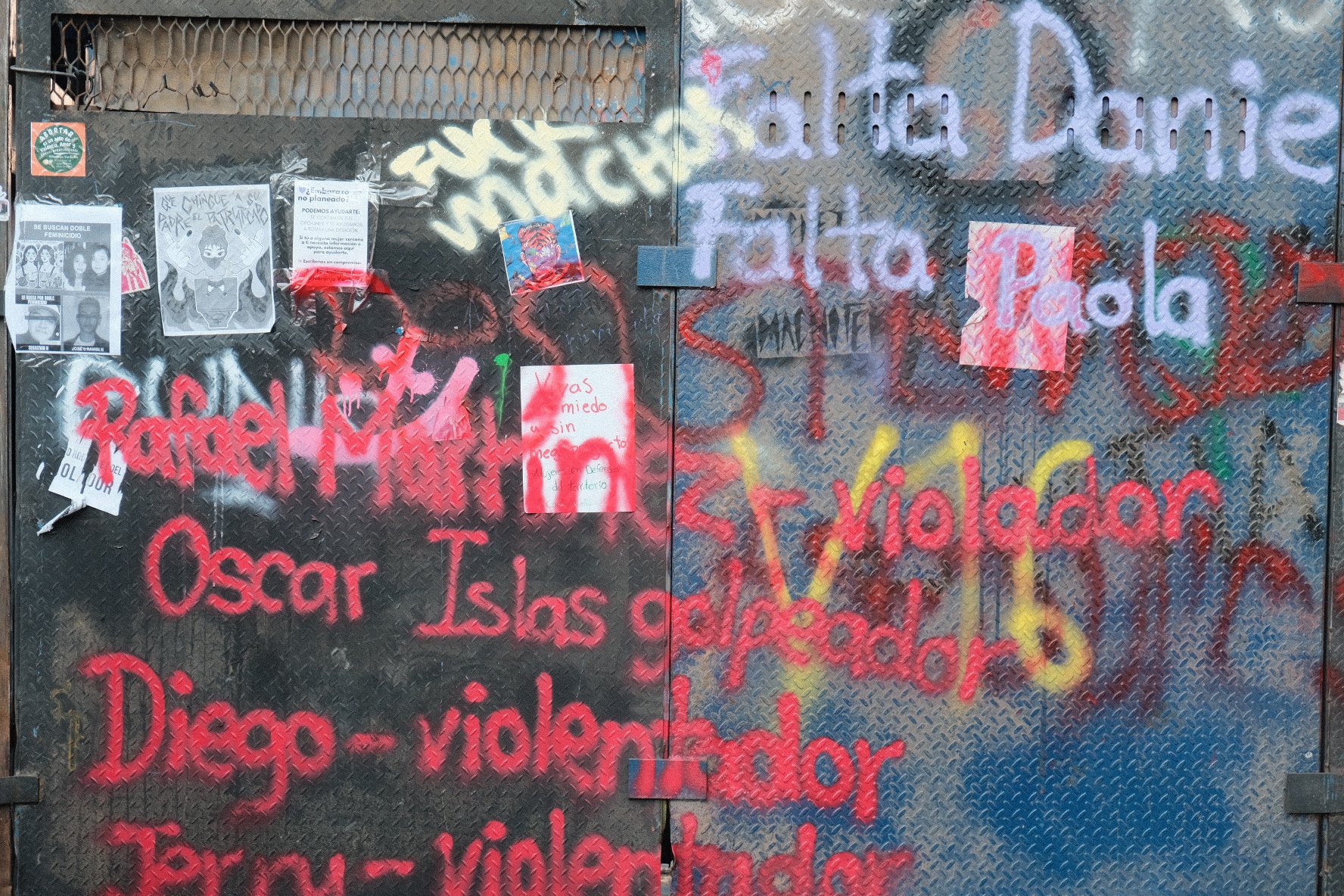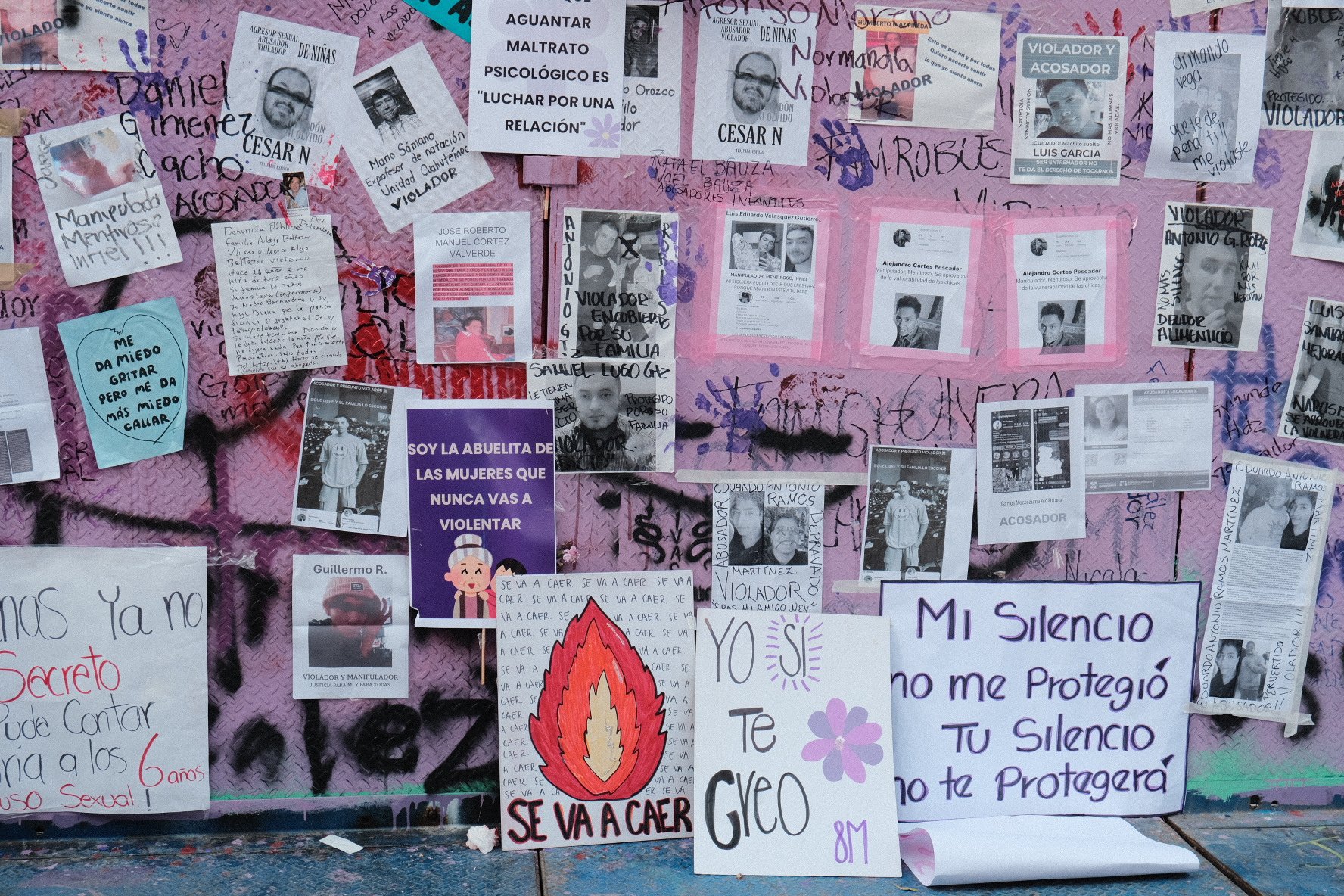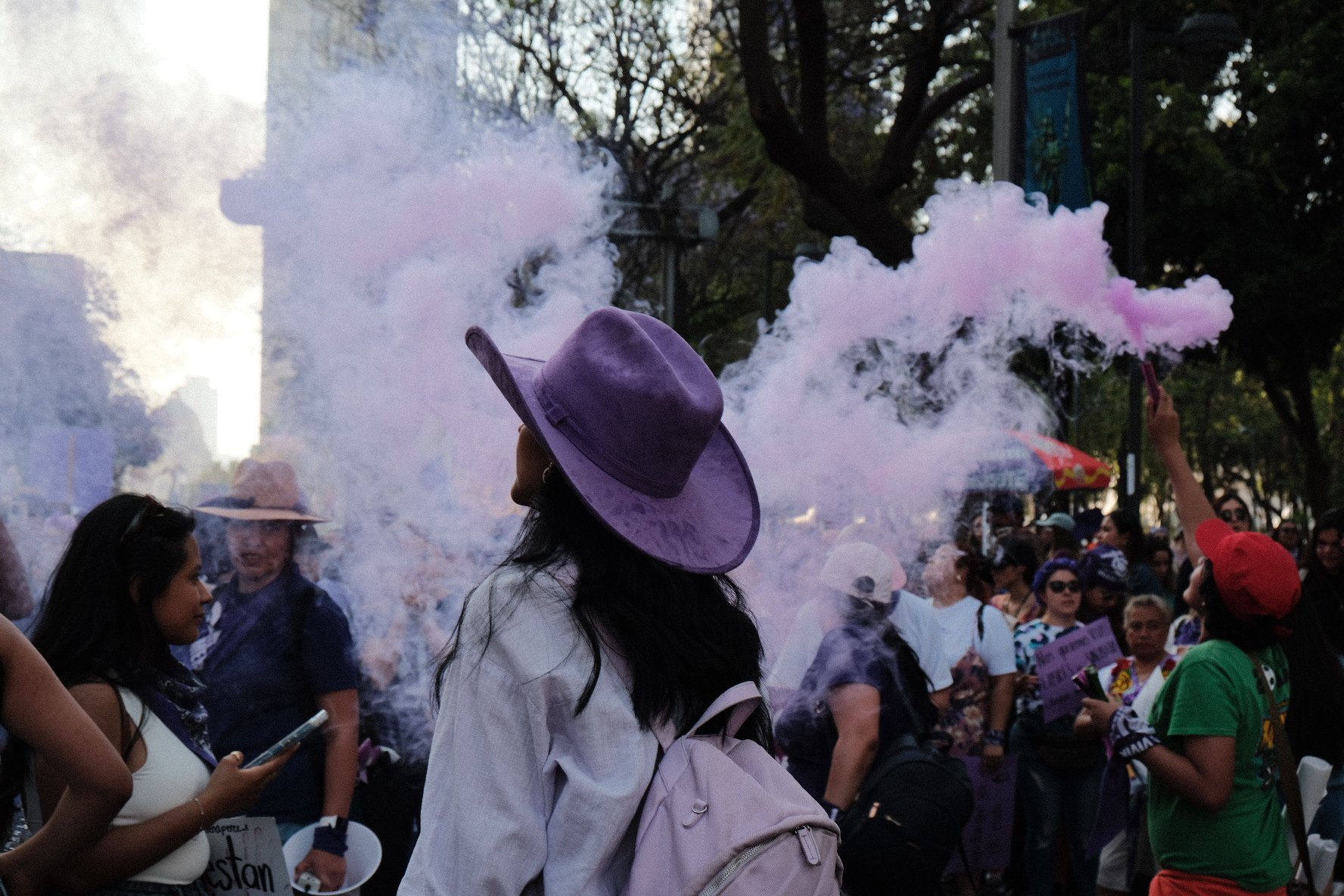
International Women’s Day is celebrated around the world as a day of protest to end discrimination and gender-based violence and call for equal rights and treatment under the law. On March 8, 2025, hundreds of thousands of women took to the streets in Mexico City to protest the high rates of femicide and gender-based violence. With the election the first female President in 2024, there has been a symbolic shift in the country, but the culture of machismo will take much longer to change. While it is hard to statistically calculate the effects of grassroots protests like this one, the sheer size could not be ignored anywhere in the city. How much does this visibility create cultural or political change? Beyond that, how does collective action and openness change the lives of victims of abuse, letting them know that they are not alone?
